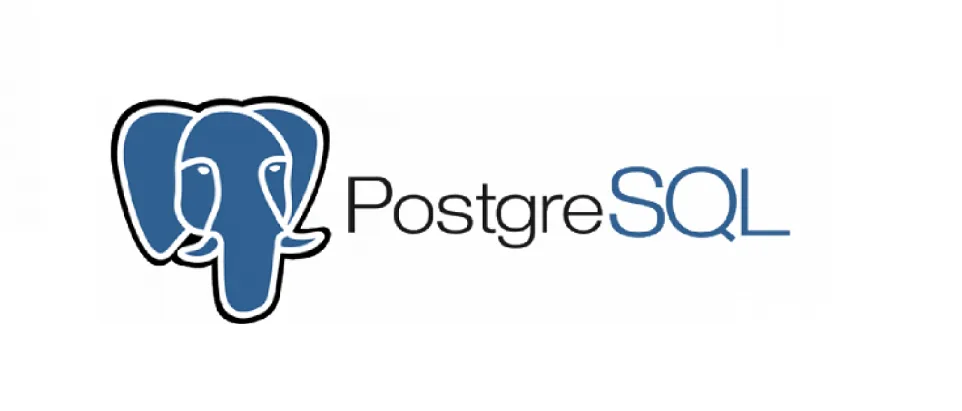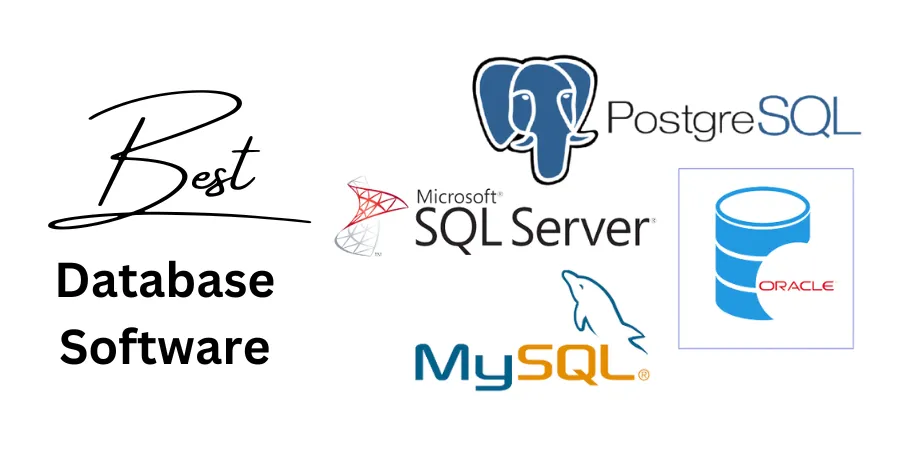3+ Best Database Software [Reviewed and Ranked]
Database software is an essential tool for businesses, organizations, and individuals to store, organize, and retrieve data efficiently.
With so many options available, it can be overwhelming to choose the right one for your needs.
In this guide, we’ll review some of the best database software options on the market, including their benefits, pros and cons, and how to get started with them.
What Is The Best Database Software?
1. MySQL
MySQL is a popular open-source database management system that is widely used in web applications and websites.

It is known for its reliability, flexibility, and performance, making it an ideal choice for small to medium-sized businesses.
Benefits of using MySQL
- It is free and open-source, so there are no upfront costs or licensing fees.
- MySQL is easy to install and set up, even for beginners.
- It has a large user community, so there are plenty of resources available for troubleshooting and learning.
- MySQL has a wide range of supported programming languages, including PHP, Python, and Java.
Pros of MySQL
- It is reliable and performs well even with large amounts of data.
- MySQL is easy to use and has a simple interface.
- It is flexible and can be customized to fit your specific needs.
Cons of MySQL
- It may not be the best choice for large enterprises with complex data storage needs.
- MySQL may not have all the advanced features of other database management systems.
To get started with MySQL, you can download it from the official website and follow the installation instructions.
There are also many tutorials and online courses available to help you learn how to use it effectively.
2. PostgreSQL
PostgreSQL is a powerful and feature-rich open-source database management system developed by the PostgreSQL Global Development Group.

It is known for its reliability, performance, and flexibility, making it a popular choice for small to medium-sized businesses.
Benefits of using PostgreSQL
- It is free and open-source, so there are no upfront costs or licensing fees.
- PostgreSQL is highly scalable, so it can handle large amounts of data and handle high levels of concurrency.
- It has a wide range of tools for data analysis and business intelligence.
Pros of PostgreSQL
- It is highly reliable and performs well even with large amounts of data.
- PostgreSQL is flexible and can be customized to fit your specific needs.
- It is supported by a large and active user community.
Cons of PostgreSQL
- It may not have all the advanced features of other database management systems.
- PostgreSQL may be more complex to use and set up compared to other database management systems.
To get started with PostgreSQL, you can download it from the official website and follow the installation instructions.
There are also many tutorials and online courses available to help you learn how to use it effectively.
3. Microsoft SQL Server
Microsoft SQL Server is a powerful and feature-rich database management system developed by Microsoft.

It is widely used in large enterprises and offers a range of advanced features for data management, security, and analytics.
Benefits of using Microsoft SQL Server
- It is highly scalable, so it can handle large amounts of data and handle high levels of concurrency.
- Microsoft SQL Server offers advanced security features, including data encryption and user authentication.
- It has a wide range of tools for data analysis and business intelligence.
Pros of Microsoft SQL Server
- It is highly reliable and performs well even with large amounts of data.
- Microsoft SQL Server offers a range of advanced features for data management, security, and analytics.
- It is supported by a large and active user community.
Cons of Microsoft SQL Server
- It is not open-source, so it may have higher upfront costs and licensing fees.
- Microsoft SQL Server may be more complex to use and set up compared to other database management systems.
To get started with Microsoft SQL Server, you can purchase a license and download it from the Microsoft website.
There are also many resources available, including online courses and tutorials, to help you learn how to use them effectively.
4. Oracle Database

Oracle Database is a powerful and feature-rich database management system developed by Oracle Corporation.
It is widely used in large enterprises and offers a range of advanced features for data management, security, and analytics.
Benefits of using Oracle Database
- It is highly scalable, so it can handle large amounts of data and handle high levels of concurrency.
- Oracle Database offers advanced security features, including data encryption and user authentication.
- It has a wide range of tools for data analysis and business intelligence.
Pros of Oracle Database
- It is highly reliable and performs well even with large amounts of data.
- Oracle Database offers a range of advanced features for data management, security, and analytics.
- It is supported by a large and active user community.
Cons of Oracle Database
- It is not open-source, so it may have higher upfront costs and licensing fees.
- Oracle Database may be more complex to use and set up compared to other database management systems.
To get started with Oracle Database, you can purchase a license and download it from the Oracle website.
There are also many resources available, including online courses and tutorials, to help you learn how to use them effectively.
How do I choose the best database software for my needs?
To choose the best database software for your needs, consider the following factors:
Size of your organization
If you have a small business or organization, free and open-source database software like MySQL or PostgreSQL may be sufficient.
If you have a large enterprise, you may need a more powerful and feature-rich database management system like Microsoft SQL Server or Oracle Database.
Type of data
Different database software options are better suited for different types of data.
For example, if you need to store and manage large amounts of structured data, a relational database management system like MySQL or Microsoft SQL Server may be a good choice.
If you need to store and manage unstructured data, a NoSQL database like MongoDB or Cassandra may be a better option.
Level of complexity
Some database software options are more complex to use and set up compared to others. If you are a beginner or have limited technical expertise, you may want to choose a database software that is easier to use and has a simple interface, such as MySQL.
If you have more technical expertise and are comfortable with a more complex interface, you may want to consider database software with more advanced features, such as Microsoft SQL Server or Oracle Database.
Budget
The cost of database software can vary widely, depending on the features and complexity of the product. If you have a limited budget, you may want to consider a free and open-source option like MySQL or PostgreSQL.
If you have a larger budget and are willing to pay for a more powerful and feature-rich product, you may want to consider commercial database software like Microsoft SQL Server or Oracle Database.
Support and resources
It’s important to choose a database software that has a large and active user community, as this will make it easier to find support and resources if you encounter any issues.
You should also consider the level of technical support available from the manufacturer or provider, as this can be helpful if you need assistance with installation or troubleshooting.
Frequently asked questions about database software
For small businesses, MySQL and PostgreSQL are both good options. They are both free and open-source, so there are no upfront costs or licensing fees, and they are easy to install and set up. They are also both highly reliable and perform well even with large amounts of data.
For large enterprises, Microsoft SQL Server and Oracle Database are both good options. They are both highly scalable and offer a range of advanced features for data management, security, and analytics. They are also both highly reliable and perform well even with large amounts of data. However, they may have higher upfront costs and licensing fees compared to open-source options.
Yes, there are several database software options that are free and open-source, including MySQL and PostgreSQL. These options are free to download and use, and they do not require any upfront costs or licensing fees. However, they may not have all the advanced features of other database management systems.
Conclusion
Choosing the best database software for your needs will depend on factors such as the size of your organization, the type of data you need to store and manage, your level of technical expertise, your budget, and the level of support and resources available.
By carefully considering these factors, you can choose a database software that will meet your needs and help you manage and retrieve your data efficiently.




